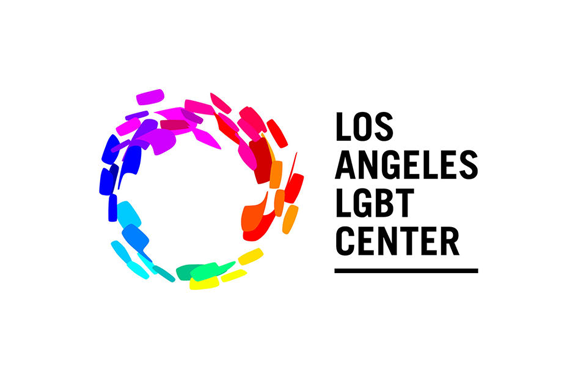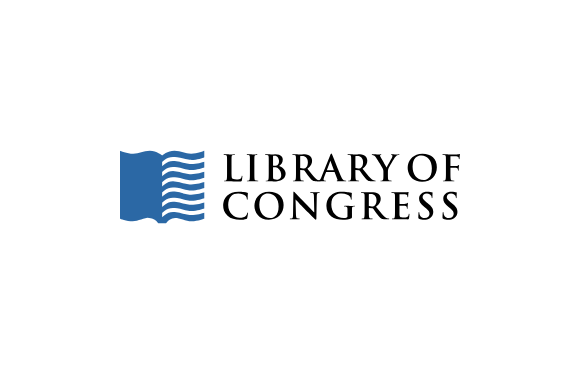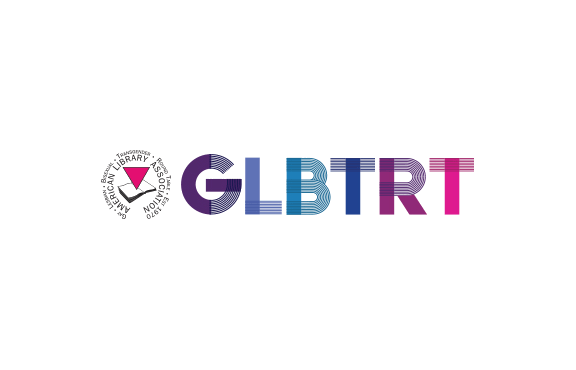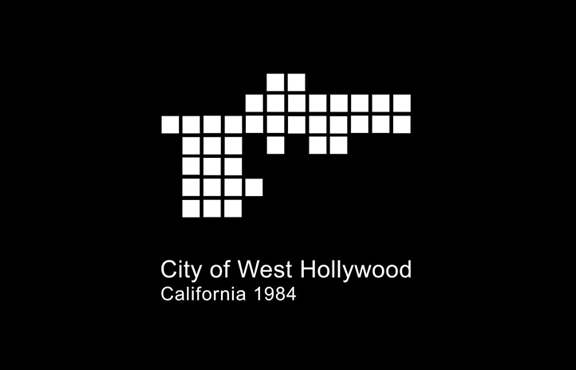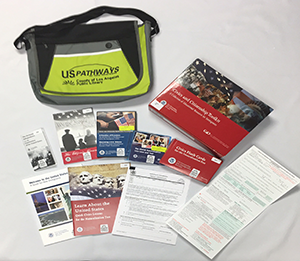LGBTQ+ Pride
 Celebrating LBGTQ+ Pride!
Celebrating LBGTQ+ Pride!
Check out the resources and materials we’ve put together to inform and celebrate the LGBTQ+ community in Los Angeles County and beyond. This page will be updated regularly, so feel free to check back for more new and exciting videos, booklists, activities, learning pathways, and more. There’s also info on accessing relevant archives on LGBTQ+ history that researchers will find valuable.
Featured LGBTQ+ Trailblazers
Learn the stories of advocates that helped advance LGBTQ+ rights in the United States. Click the plus sign (+) for the full bios and links to items available to borrow with your LA County Library card.
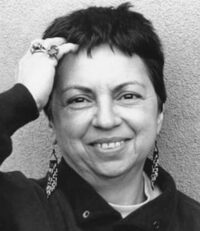
Gloria Anzaldúa
Her writings often explored issues of race, gender, sexuality, and the intersections of these identities. She was a vocal advocate for LGBTQ+ rights, and her work delved into the challenges faced by queer individuals within marginalized communities.
Her most influential writings included the book “Borderlands/La Frontera: The New Mestiza” (1987). In this groundbreaking work, Anzaldúa discusses the experience of living in the borderlands, the area between the United States and Mexico, and how it creates a unique, hybrid identity for those living there. She coined the term “mestiza consciousness” to describe the blending of various cultural and social identities in the border region. She is also known for co-editing This Bridge Called My Back: Writings by Radical Women of Color (1981). This seminal anthology of writings by feminist women of color examines the relationships between feminism, race, class, and sexuality.
Adult Books
This bridge we call home : radical visions for transformation by Gloria Anzaldúa
Borderlands : the new mestiza = La frontera by Gloria Anzaldúa
Light in the dark : rewriting identity, spirituality, reality = Luz en lo oscuro by Gloria Anzaldúa
Children’s Books
Prietita and the ghost woman = Prietita y la llorona by Gloria Anzaldúa
Friends from the other side = Amigos del otro lado by Gloria Anzaldúa
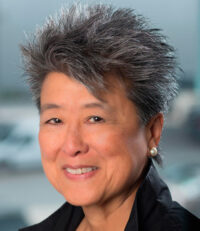
Helen Zia
Zia’s identity as a lesbian further added to her commitment to advocacy. Her public coming out was a courageous act in a time when LGBTQ individuals faced widespread discrimination and prejudice. She recognized the importance of visibility and authenticity, becoming an inspirational figure for LGBTQ communities. Zia’s activism within the LGBTQ community extended to advocating for LGBTQ rights, particularly during the early days of the AIDS crisis, when she worked tirelessly to raise awareness and promote compassionate policies.
In addition to her advocacy work, Helen Zia is an accomplished writer and journalist. Her books include Last Boat Out of Shanghai and Asian American Dreams, the latter a staple of many Asian American Studies courses. Zia’s writings often explore the complexities of identity, belonging, and the intersection of race and sexuality. Through her books, articles, and speeches, Zia has been instrumental in raising awareness about the experiences of Asian American LGBTQ individuals, shedding light on their unique challenges and contributions.
Adult Books
Asian American Dreams: The Emergence of an American People By Helen Zia
Last Boat Out of Shanghai: The Epic Story of the Chinese who Fled Mao’s Revolution By Helen Zia
My Country Versus Me: The First-hand Account by the Los Alamos Scientist Who Was Falsely Accused of Being a Spy By Wen Ho Lee with Helen Zia
Notable Asian Americans By Helen Zia
Documentaries:
Not Your Model Minority directed by Jon Osaki (On Kanopy)
Online Resources:
“Helen Zia on the Asian American Movement.” Facing History and Ourselves.
“Helen Zia.” Museum of Chinese in America
“Helen Zia.” PBS Learning Media
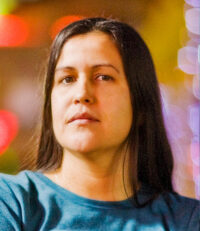
Natalie Diaz
Born in 1978 in Needles, California, Diaz spent her childhood going between the library, gym, and basketball courts. At age 42, she became the youngest chancellor elected to the Academy of American Poets. In addition to this, she was awarded the MacArthur Fellowship, Bread Loaf Fellowship, Native Arts Council Foundation Artist Fellowship, and many other prestigious awards. Diaz received both her Bachelor of Arts and her Master of Fine Arts in writing from Old Dominion University. When My Brother Was an Aztec was her first published collection of poems and won the American Book Award. Her other published collection of poems, Postcolonial Love Poem, earned her the Pulitzer Prize for Poetry.
Both her experience as an athlete and a linguist has shaped her literary work. Her poetry reflects the power of language which she believes is a very physical energy that she finds similar to when she played basketball. You can find this in her descriptions about the body and her usage of English, Spanish, and Mojave words. Her poems explore many topics such as reservation life, Mojave life, Native issues, politics, and the sensuality and appreciation for her partner’s female body. She’s been recognized by many for her Indigenous, multicultural, and queer voice that challenges colonial and mainstream thinking.
Adult Books
Postcolonial love poem by Natalie Diaz
When my brother was an Aztec by Natalie Diaz
Online Resources
PBS – Conversation: Poet Natalie Diaz
MacArthur Foundation – Poet Natalie Diaz
T.S. Eliot Prize – Natalie Diaz Talks About Her Work
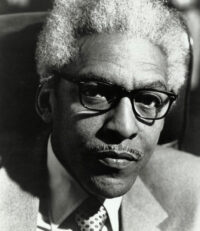
Bayard Rustin
Bayard Rustin was born in 1912 in eastern Pennsylvania, and was raised by his grandparents, from whom he learned the Quaker value of pacifism. This may be why, as a young man, Rustin fully embraced Mahatma Gandhi’s philosophy of nonviolence both as a way of life and as a vehicle for advancing the cause of justice. Rustin’s commitment to pacifism and his opposition to the racial discrimination present in the U.S. Armed Forces resulted in him spending 26 months in prison as a conscientious objector during World War II. There, Rustin organized other inmates into protests against the racial segregation built into the prison system.
Throughout the 60’s and 70’s, Bayard Rustin continued to engage in the struggle for justice, both nationally and internationally. In the 1980s, until his death in 1987, he was active in the movement for gay rights and worked to bring knowledge of the AIDS crisis to the attention of the NAACP. In 2013, President Barack Obama awarded Rustin the Presidential Medal of Freedom posthumously, saying, “For decades, this great leader, often at Dr. King’s side, was denied his rightful place in history because he was openly gay. No medal can change that, but today, we honor Bayard Rustin’s memory by taking our place in his march towards true equality, no matter who we are or who we love.”
Adult Books
Lost prophet : the life and times of Bayard Rustin by John D’Emilio
Bayard Rustin : troubles I’ve seen : a biography by Jervis Anderson
Children’s Books
Unstoppable : how Bayard Rustin organized the 1963 March on Washington by Michael G. Long
Bayard Rustin by J. P. Miller
Trouble maker for justice : the story of Bayard Rustin, the man behind the March on Washington by Jacqueline Houtman
Documentary on DVD
Brother outsider: the life of Bayard Rustin
Online Resources
“Who Designed the March on Washington?” Henry Louis Gates, Jr., PBS’s The African Americans: Many Rivers to Cross
“Remembering Bayard Rustin: The Man Behind the March on Washington,” NPR Thoroughline
“Before Montgomery: Bayard Rustin and the Fight for Racial Justice During World War II,” National World War II Museum
Activities & Resources
Virtual Film Fest
Viewer’s Guide: Brother Outsider
Viewer’s Guide: Hearts Beat Loud
Viewer’s Guide: Stonewall Uprising
Viewer’s Guide: The Adventures of Priscilla Queen of the Desert
Viewer’s Guide: The Way He Looks
Viewer’s Guide: Watermelon Woman
Learning Pathways
Learning Pathway: Exploring Gender
Learning Pathway: LGBTQ+ History in Los Angeles
Activity Ideas
Activity Idea: Lifeguard Tower at Ginger Rogers Beach Coloring Page
Activity Idea: NaNoWriMo Prompts
Activity Idea: World AIDS Day Quilt Activity
Activity Idea: Rainbow Popsicles
Activity Idea: Thank You Letter to Queer Pioneers
Booklists
LGBTQ+ Poetry
LGBTQ+ Romance for Adults
Lambda Literary Award Winners for Adults
Celebrate Pride for Adults
LGBTQ+ Cozy Novels for Adults
LGBTQ+ Graphic Novels for Adults
LGBTQ+ Poetry
LGBTQ+ Life and Times
Life Is Funny That Way: Humorous LGBTQ+ Memoirs
LGBTQ Authors Writing in Spanish / Autores LGBTQ que escriben en español
LGBT Collection at the West Hollywood Library
Our West Hollywood Library holds our LGBT Collection, a comprehensive collection of LGBT fiction and non-fiction literature and history in a variety of formats: books, journals, periodicals, VHS, and DVD. The collection reflects the rich history, culture, and experiences of the LGBT community both locally and globally. It includes popular and academic materials, out-of-print and hard-to-find titles, LGBT classics, current bestsellers, and new Lambda Literary Award winners and nominees.


